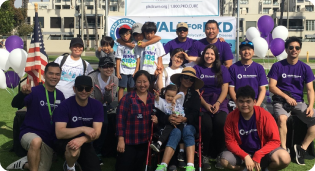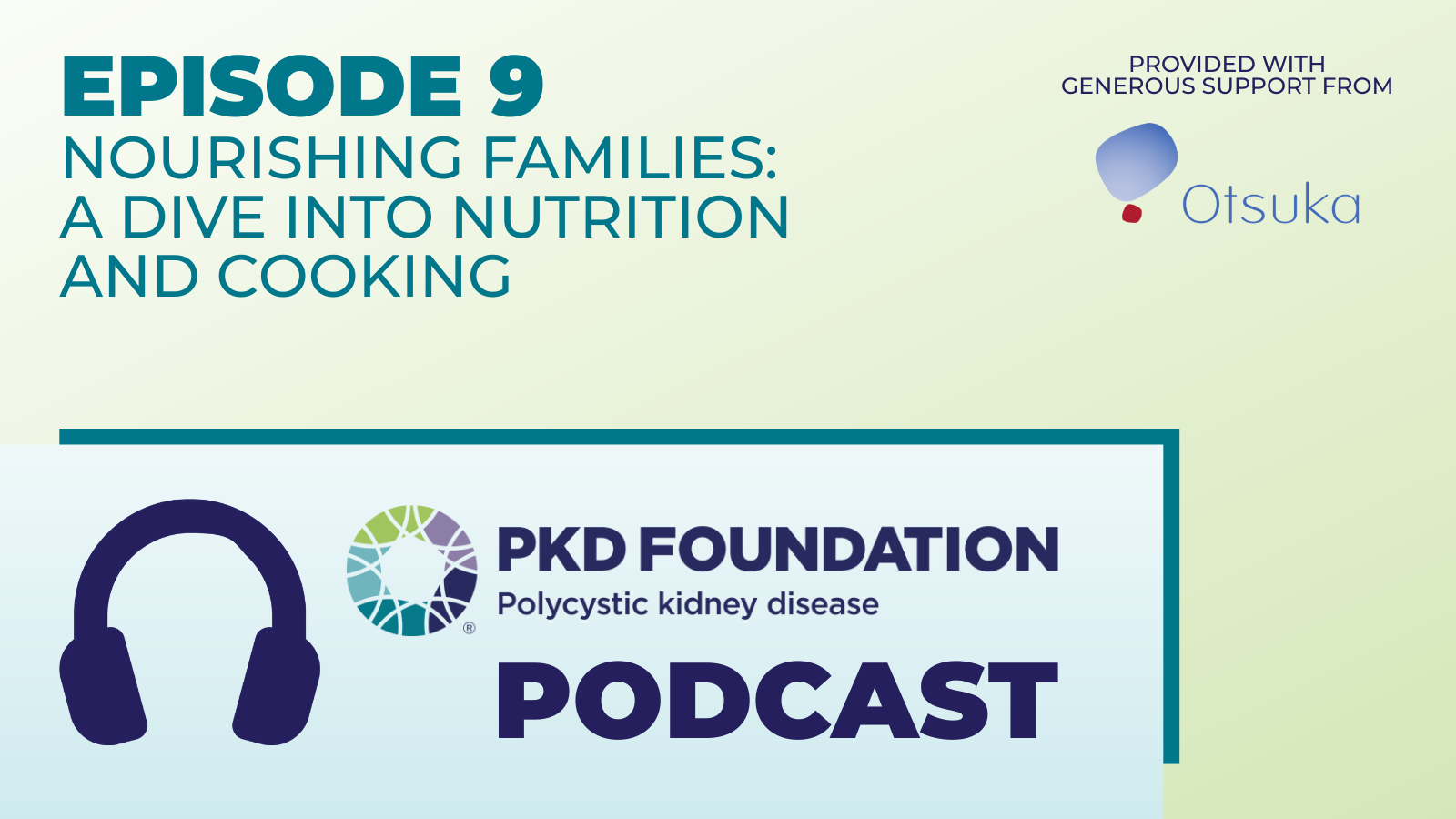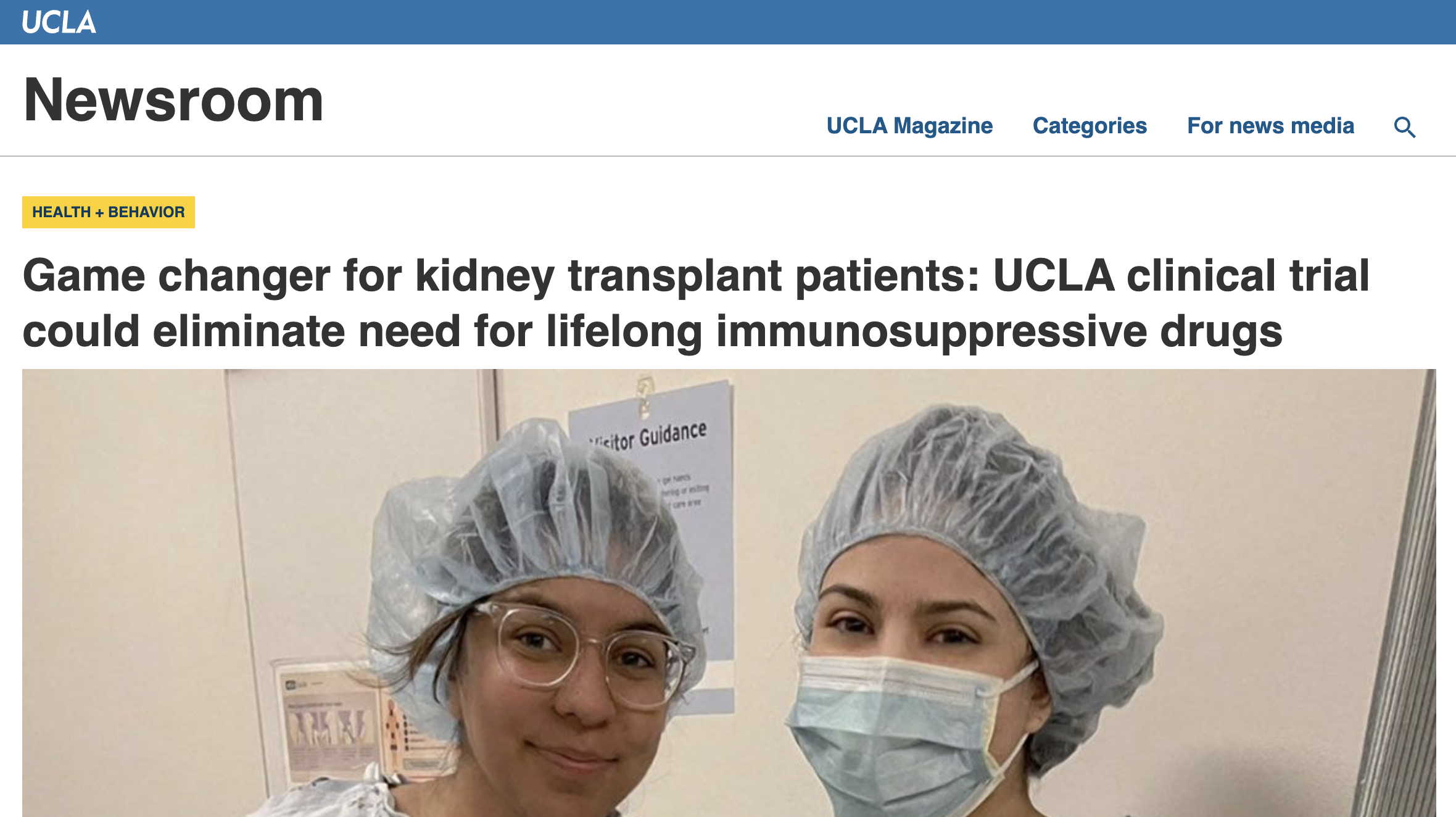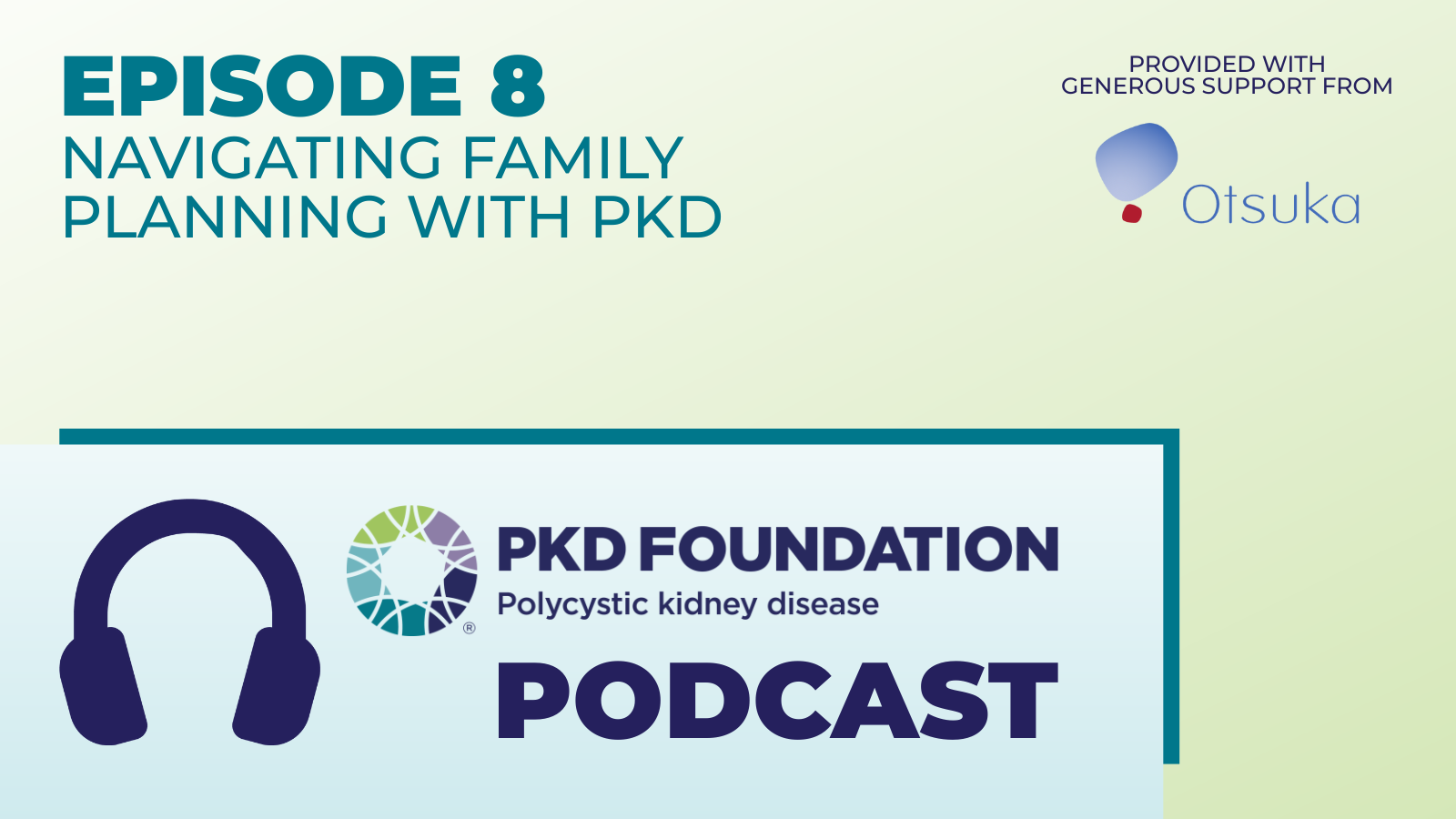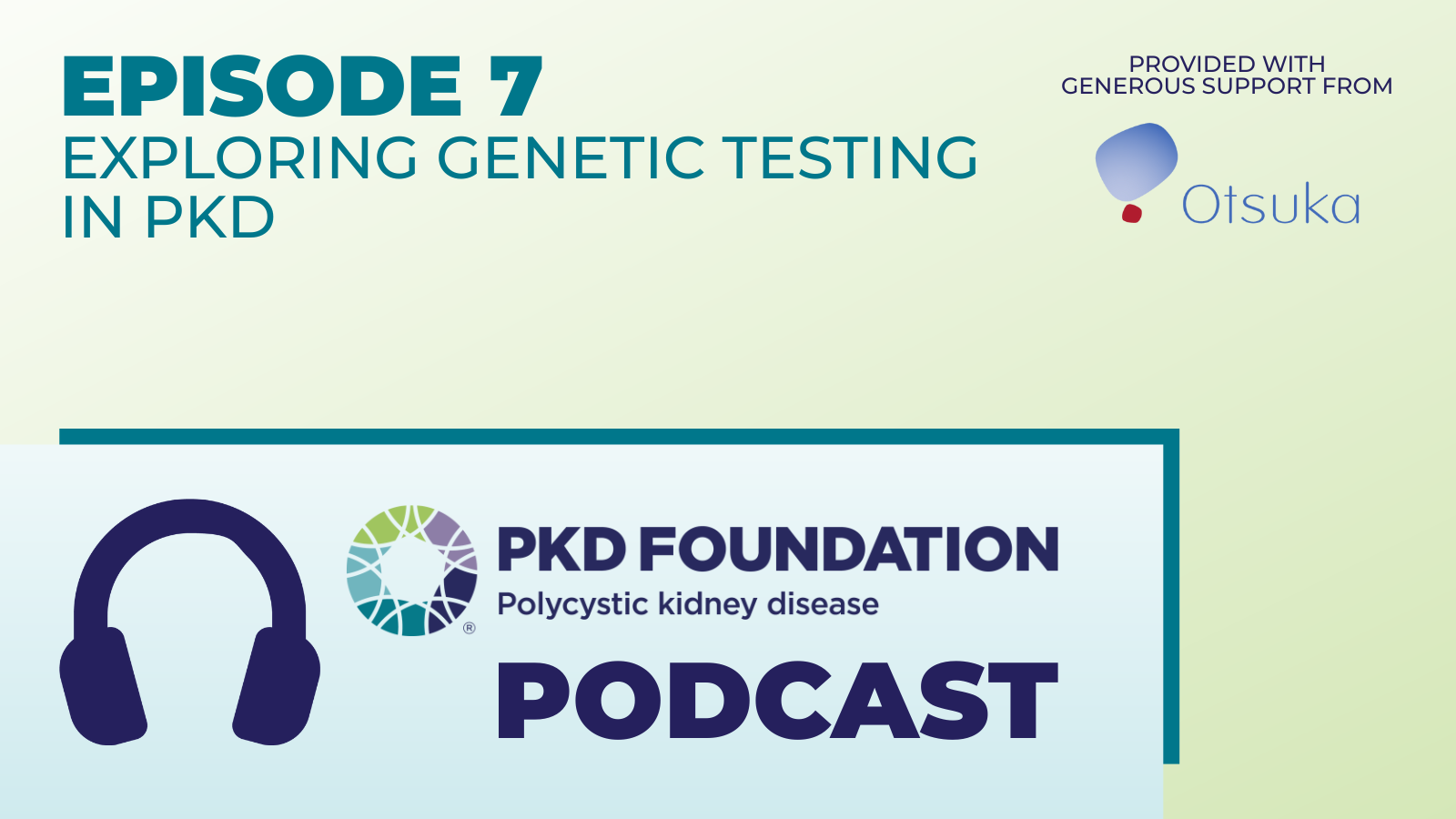All PKD Resources
Category
- ADPKD
- ADPKD Registry
- Advocacy
- Aneurysm
- Approaching Kidney Failure
- ARPKD
- Blog
- Caregivers
- Centers of Excellence
- CHF
- Children
- Clinical Trials
- COE
- Communities
- Complications
- Conference
- Congenital Hepatic Fibrosis
- Diagnosis
- Dialysis
- Diet
- Donate
- Drug Therapy and Treatments
- Education
- End Stage Kidney Disease
- ESKD
- Family Life
- Featured
- Fundraise Your Way
- genetic testing
- genetics
- Handbook
- Healthcare
- Healthcare Team
- Immunosuppression
- Kidney donation
- Kidney Failure
- Kidney transplant
- living donation
- Living donor
- Living Post-Transplant
- Living with PKD
- Management
- Mental Health
- Nephrectomy
- Nephrologist
- Newly Diagnosed
- Nutrition
- PKD
- PKD News
- PKD Parents
- PKDCON
- Podcast
- Polycystic Liver Disease
- Pregnancy
- Progression
- Recipes
- Research
- Staying Healthy
- Symptoms
- Teens and Young Adults (13-20)
- The Basics of PKD
- TKV
- Tolvaptan
- Total kidney volume
- Transplant evaluation
- Transplantation
- Treatment
- Voices of PKD
- Walk for PKD
- Webinar
- Wellness
- Young Children

- Resources 1 min read

- Resources 3 min read



